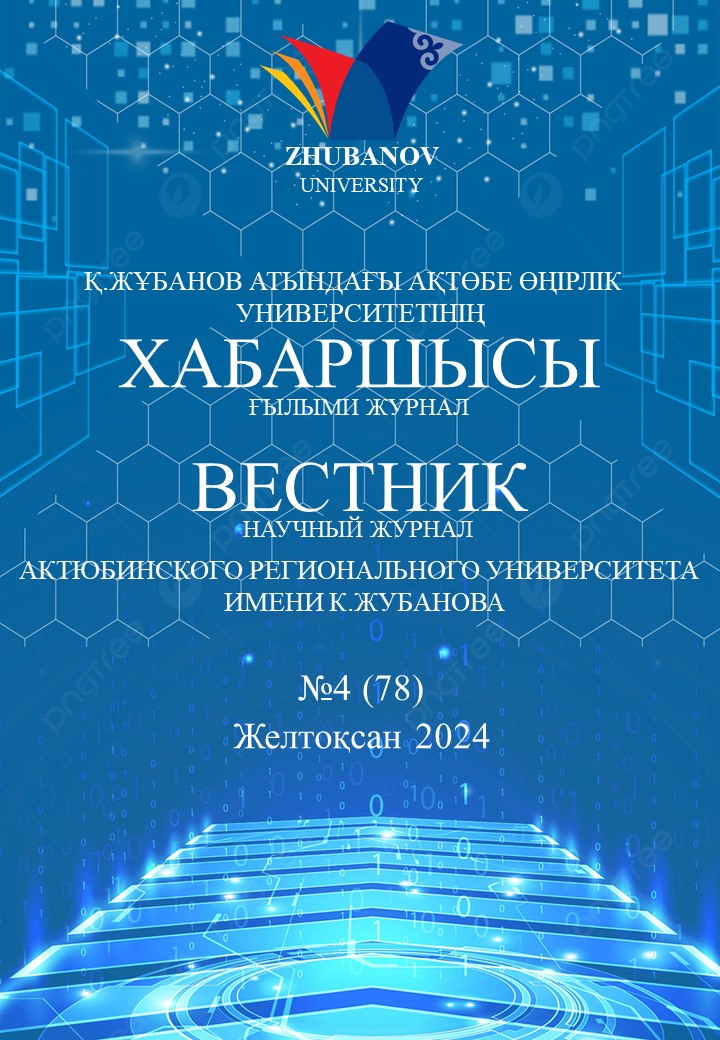В данной статье рассматриваются трансформация современного образовательного процесса и важность эмоционального интеллекта (EQ) студентов. В образовательном процессе становится важным повышение мобильности студентов, формирование индивидуальных образовательных траекторий и развитие способности адаптироваться к учебным условиям. В этой связи особое внимание уделяется роли эмоционального интеллекта в учебной и профессиональной жизни. Необходимость развития эмоционального интеллекта помогает студентам справляться со стрессовыми ситуациями, улучшать отношения и адаптироваться в профессиональной сфере. В статье анализируются различные теории и модели, связанные с признанием, пониманием и управлением эмоциями. Рассматриваются выводы Д.Гоулмана, П.Саловея и Д.Майера, Р. Бар-Она и Д.В.Люсина относительно компонентов эмоционального интеллекта и его значения в жизни человека. На основе эмоционального интеллекта лежат такие навыки, как контроль собственных эмоций, эмпатия, эффективное взаимодействие с другими людьми и умение справляться со стрессовыми ситуациями. В ходе исследования был определен уровень эмоционального интеллекта студентов высших учебных заведений. Результаты показали, что эмоциональный интеллект студентов в основном находится на среднем уровне, однако способность понимать и контролировать собственные эмоции оказалась низкой. В связи с этим предлагается разработка специализированных программ и тренингов для студентов, включая методы арт-терапии для развития эмоционального интеллекта.
КУАНЖАНОВА К.Т.
доктор философии (PhD), доцент, Актюбинский региональный университет имени К. Жубанова, г. Актобе, Казахстан
E-mail: kkt-87@mail.ru, https://orcid.org/0000-0003-4269-6838
СМАИЛОВА Г.С.
старший преподаватель, Аркалыкский педагогический институт имени И.Алтынсарина, г. Аркалык, Казахстан
E-mail: guldana-s@mail.ru, https://orcid.org/0009-0004-9576-4157
- Безбородова Л. А. Эмоциональный интеллект как важный фактор коммуникативного взаимодействия преподавателя и студентов / Л. А. Безбородова, М. А. Безбородова // Наука и школа. – 2018. – № 3. – С. 52–57.
- Ларина А. Т. Эмоциональный интеллект // Азимут научных исследований: педагогика и психология. 2016. Т. 5, № 3 (16). С. 275–278.
- James С., Bore M., Zito S. Emotional Intelligence and Personality as Predictors of Psychological Well-Being // Journal of Psychoeducational Assessment. 2012. Vol. 30, iss. 4. P. 425–438. https://doi.org/10.1177/0734282912449448. DOI: https://doi.org/10.1177/0734282912449448
- Алимбаева Р. Т., Есназарова, Л. У. Теоретические аспекты эмоционального интеллекта // Инновационная наука. 2017. № 03–1. С. 242–243.
- Bar-On, R. The handbook of emotional intelligence: theory, development, assessment, and application at home, school, and in the workplace / R. Bar-On y J. Parker // Intelligence. – 2000. – No. 30. – P. 209-219. – DOI: 10.1016/S0160-2896(01)00084-8. DOI: https://doi.org/10.1016/S0160-2896(01)00084-8
- Рубинштейн С. Л. Основы общей психологии / С. Л. Рубинштейн. – Санкт-Петербург: Питер, 2000. – 712 с.
- Люсин Д. В. Современные представления об эмоциональном интеллекте // Социальный интеллект. Теория, измерение, исследования / под ред. Д. В. Люсина, Д. В. Ушакова. М.: Ин-т психологии РАН, 2004. С. 29–36.
- Люсин Д.В., Марютина О.О., Степанова А.С. Структура эмоционального интеллекта и связь его компонентов с индивидуальными особенностями: эмпирический анализ // Социальный интеллект: Теория, измерение, исследования / Под. ред. Д.В. Люсина, Д.В. Ушакова. – М.: Изд-во «Институт психологии РАН», 2004. – 176 с. (Труды Института психологии РАН).
- Люсин Д.В. Новая методика для измерения эмоционального интеллекта: опросник ЭмИн // Психологическая диагностика. 2006. № 4. С.


